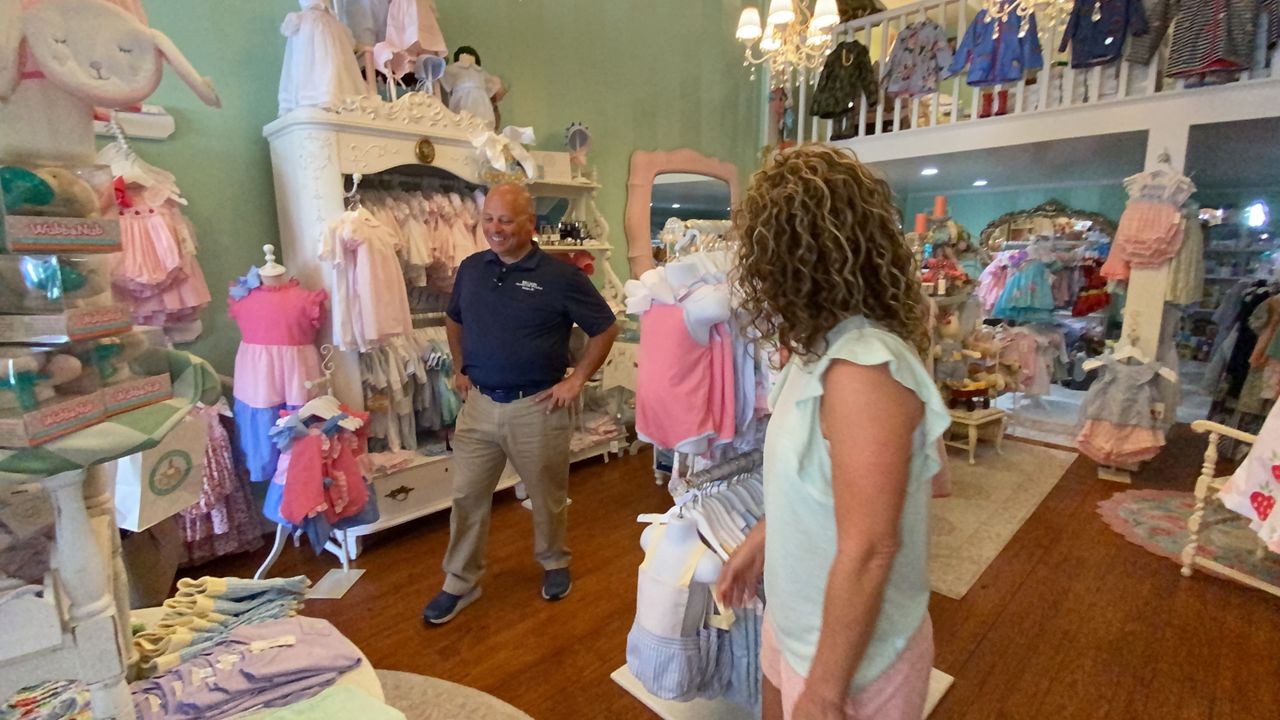WALLACE, N.C. – A Duplin County car dealer said without the county's animal processing plants, neither he nor many of the people he does business with would be here.
On a typical day at Bill Carone's Ford and Chevrolet dealerships, most of his team can be found in the back, working on cars customers have brought in for maintenance.
One technician is swapping out a faulty transmission. Another is replacing a dashboard. Carone said about 40 people work for him in all.
If it wasn't for the animal processing plants that dominate Duplin County, he said he wouldn't have even been able to open a dealership.
“The school teachers, the processors, I mean, all of these vehicles are affected by agriculture in some way, whether they work at a plant, a grocery store, teach school, there probably isn't a car within eyesight that isn't touched by agriculture in some way.”
At one time, Duplin County was a leading producer of tobacco, as was the state of North Carolina. As smoking declined and federal tobacco price support programs ended, the number of tobacco farms shrank.
USDA data show there were more than 12,000 tobacco farms in North Carolina in 1997. Twenty years later, that number had dropped to fewer than 1,300.
Today, animal processing is by far the top industry. Federal data shows Duplin County led the state in both hog and broiler chicken production in 2019, with 2.1 million and 87 million, respectively.
Neighboring Sampson County raised the most turkeys that year, with Duplin County fourth in that list (7.4 and 3.5 million, respectively).
Powered largely by animal agriculture, Duplin County took home the most cash receipts of any county in North Carolina that year —slightly more than $1 billion with nearly $916,000,000 coming from livestock and poultry.
“The chicken business in particular has been great for our local economy,” Carone said. “It's allowed the young farmer to participate in family farming and add something to the family farm.
It's not hard to find the results. Besides his main car dealerships, Carone sells skid loaders and light tractors to farmers and contractors all over the county. He recently began selling the Mahindra Roxor, a Jeep-like off-road utility vehicle made in India. Carone said about 70% of his customer base is somehow involved in agriculture. That typically means more than one vehicle per customer.
“You'll see three or four vehicles in every driveway for a reason. They have different applications,” he said.
It's a similar refrain in downtown Wallace. On Main Street, artist and Wallace native Hope Smith maintains an art gallery. Carone said he and his employees have bought several paintings and frames from her store.

A couple of doors down is The Little French Hen, a children's clothing boutique. Managers there said at least half of their business comes from people with a connection to either farming or animal processing.
At the end of the block is Townsend Auto Parts, where staff say as much as 80% of the customer base at the century-old store works has some sort of job related to agriculture.
Carone said he thinks the opportunities are endless for business owners like him. He said people will still need to eat, and Duplin County's agriculture and transportation infrastructure puts it in a strong position to take advantage of that.






